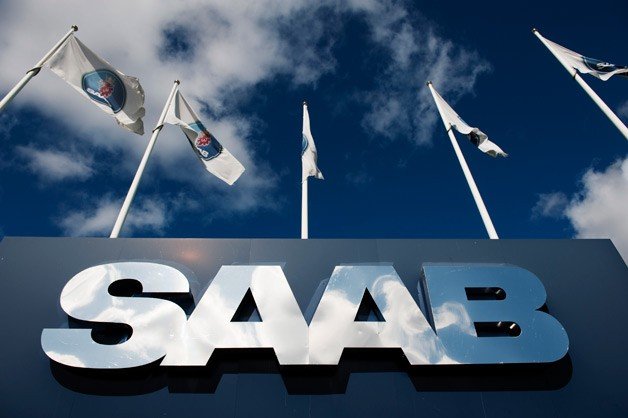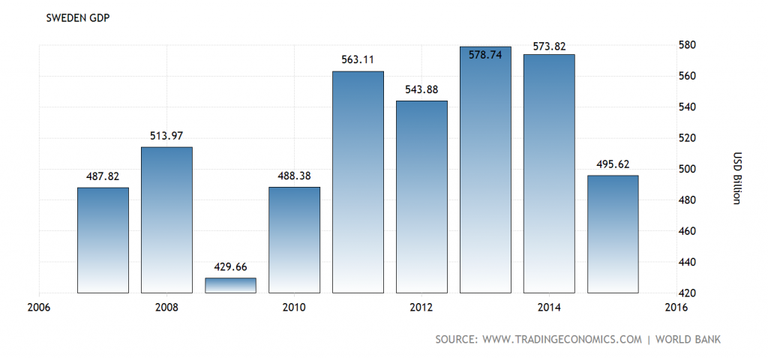As the Japanese society has become more complicated, the media started paying attention to other countries. Perhaps, one of the most attention-grabbing countries is Sweden since it has enabled people to balance in a lot of ways.
Previously, I discussed the Swedish society as the ideal model, but this can also be mentioned in their business environment, I think.
ーThe promotion of industrializationー
Sweden’s strong economy achieved by the promotion of industrialization supports the “Saving Humans” aspect of the Swedish society. The country supports business activities. On the other hand, the government is thoroughly in a capitalist economy.
ーBackground 1/ the failure of “70’s hardship’ー

Delays of a structural reform of industries and technological innovation were caused by bailing out key industries including the shipbuilding and the steel industries during the 1stoil shock.
Therefore, the government decided to never bail out declining industries, instead grope for *growth implemented by innovation such as environment, energy, pharmaceutical, and medical instruments.
Unproductive enterprises which lost international competitiveness and create only low value goods will be removed as unfit competitors for the changing world.
This is because the government deems that the growth of industries based on capital or creativity is able to make the whole economy expand.
As a matter of course, the industrial world and labor unions rebeled against it tremendously.

*Saab Automobile (Sweden) lost about $343 million in 2008, but the Swedish government opposed trying a financial rescue. In 2011, SAAB went bankrupt.
ーBackground 2/ the fact that domestic market is smallー

Because of the fact that domestic market is small, companies had no choice, but to promote international development of their businesses.
Exports account for 45.6% of GDP in 2015 according to the world bank (Japan: 17.6%). The country has addressed strengthening the international competitiveness of exporters.
Both public and private sectors recognize that the economic growth will not be achieved unless they make the domestic economy open and attractive for other countries, international companies and investors.
ーThe improvement of the IT infrastructureー

The penetration rate of cell phones is more than 1 per person. Household prevalence of PCs, access rate to the Internet, and to the broadband are over 70%.
Sweden ranked No.3 with IT competitiveness in 2015 WEF (World Economic Forum) and ranked No.3 in 2016 Digital Economy Ranking.
The government has Addressed “e-Government” enthusiastically. All of the citizen have “e-ID card” which enables everyone to complete administrative procedures on the Internet at home such as tax payments, moving, procedures to receive social security and procedures to start up a new business.
ーGovernmental support to business activities in terms of a taxation systemー
Corporate tax is 22% in 2016 (Japan: 33.06%). In addition, Swedish companies need to provide employees with no perks (the welfare of employees, family allowance, and commutation allowance).
This is because the responsibility for these perks is not individual companies, but the government.
Furthermore, the system of social security managed by the government supports workers. Hence, company’s own system of the welfare of employees is considered to be unfair because only large organizations having sound finances would be able to offer this sort of service, but financially weak companies or small firms would be unable to do so.
It can be said that the business environment in Sweden is very supportive especially for companies. Another example is that when you take sick leave, 2 weeks later, the duty of the payment of the sickness insurance will transfer to the government from your company.
The government has also been geared toward accelerating the domestic investment by setting up a variety of tax credits such as capital gains, dividends, and so on.
Income credits are implemented for international skillful workers too. This was originally just to keep the capital in the country. However, as a result, this has played a role in supporting the heavy burden of the cost of social insurance.
ーLax regulation of dismissalー
If employers deem a job is redundant, dismissals of full-time employees are often carried out.
Companies hire employees and do production activities as if they get raw materials and use them. Therefore, if the business climate gets worse, they fire employees easily. Surprisingly, a court never interferes with managerial decisions.
As a result, there is a reality that Sweden has a very competitive society where people can get fired often. However, the warm social security helps unemployed people.
This is because of the concept of
employment is not company’s responsibility but government’s.
Moreover, retirement allowance and severance pay are not paid in general.
ーSummary−1
As a result of these, the labor cost (salary + welfare of employees + tax + social insurance) in Sweden is cheaper than other European countries such as the U.K and Germany.
This has become an appeal point in order for the Swedish Investment Agency to get foreign investment
Warm social security makes the Swedish society where people are ready to accept changes and take risks voluntarily.
Congratulations @tada079! You received a personal award!
Click here to view your Board of Honor
Congratulations @tada079! You received a personal award!
You can view your badges on your Steem Board and compare to others on the Steem Ranking
Vote for @Steemitboard as a witness to get one more award and increased upvotes!